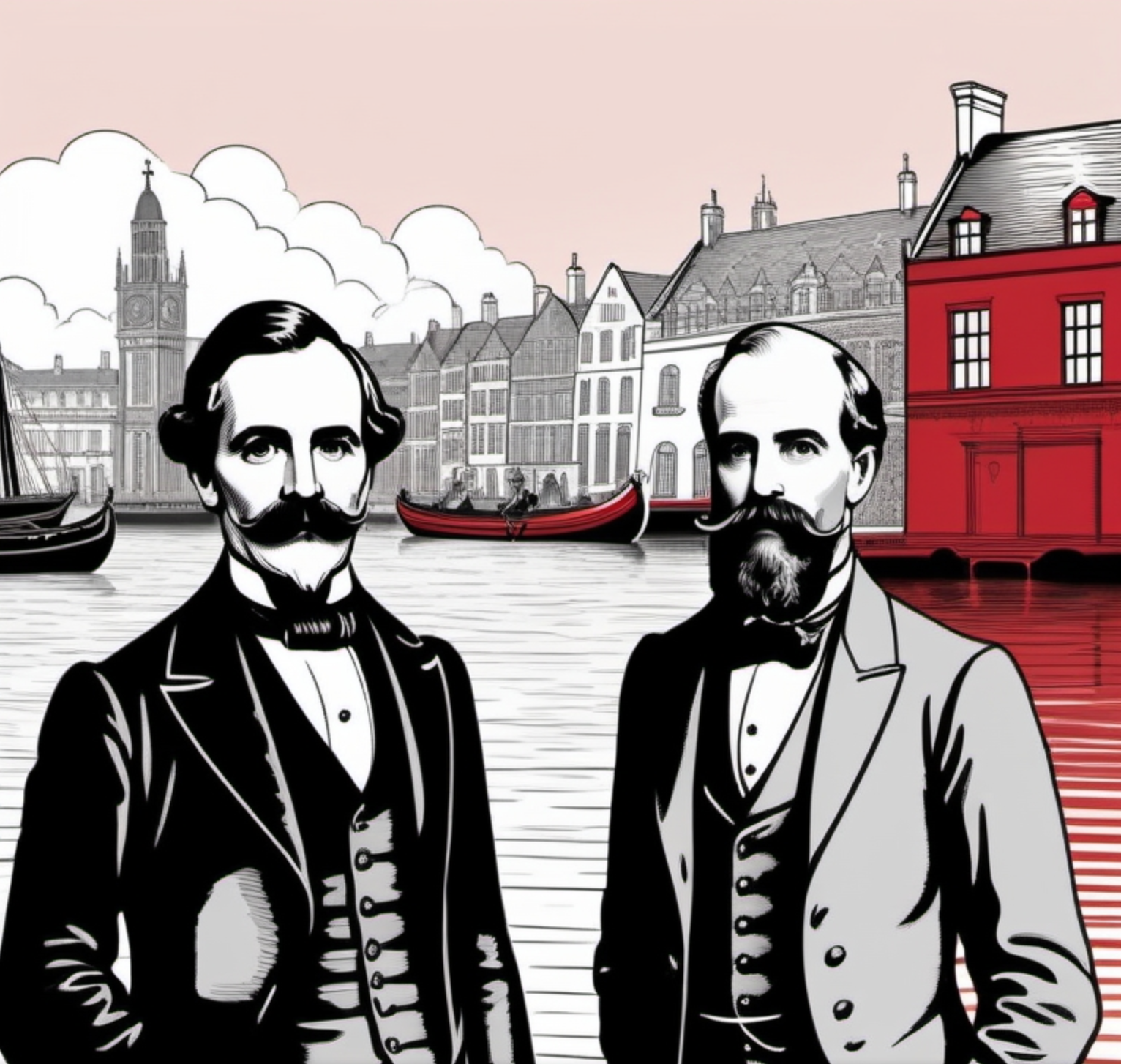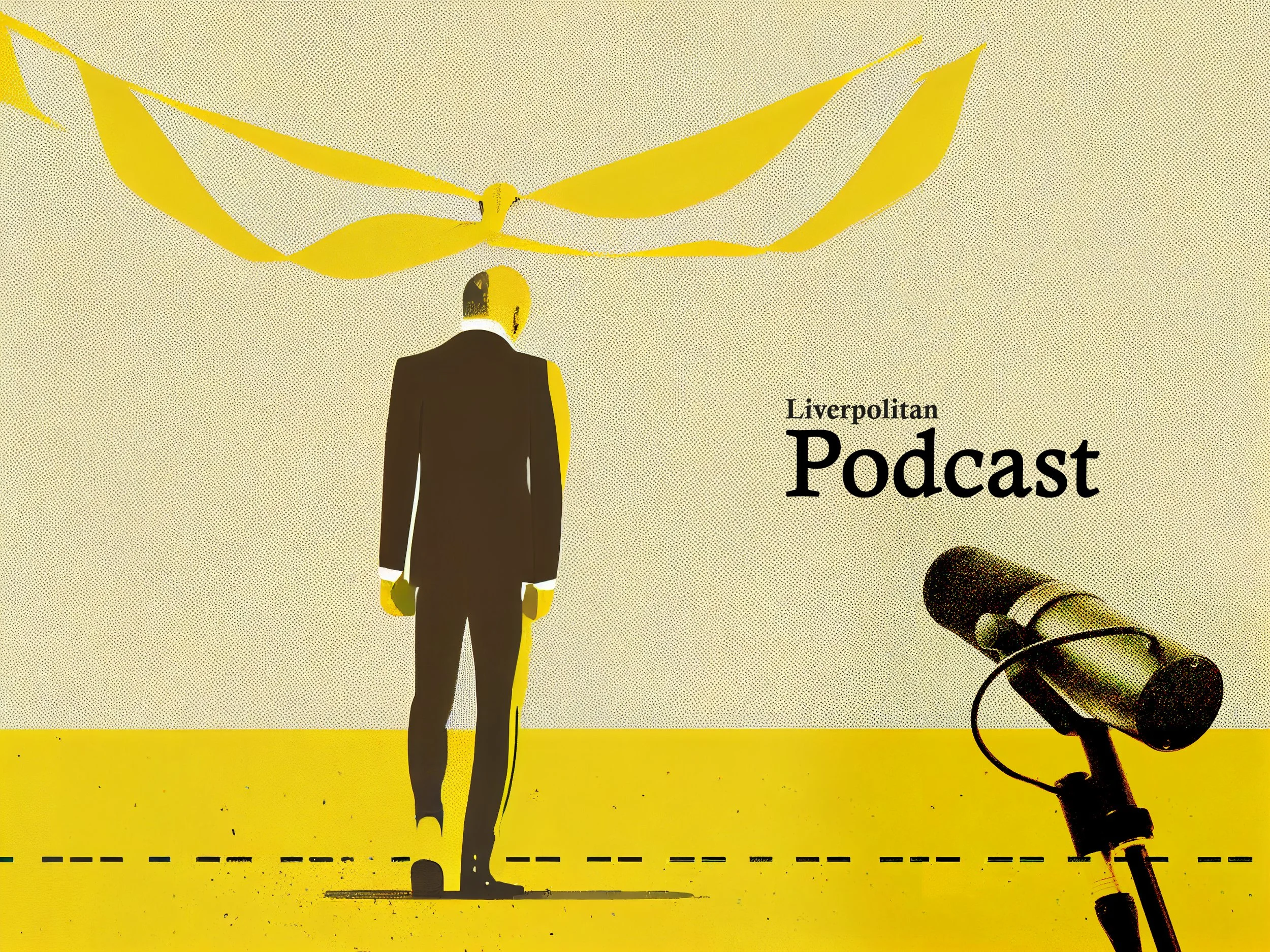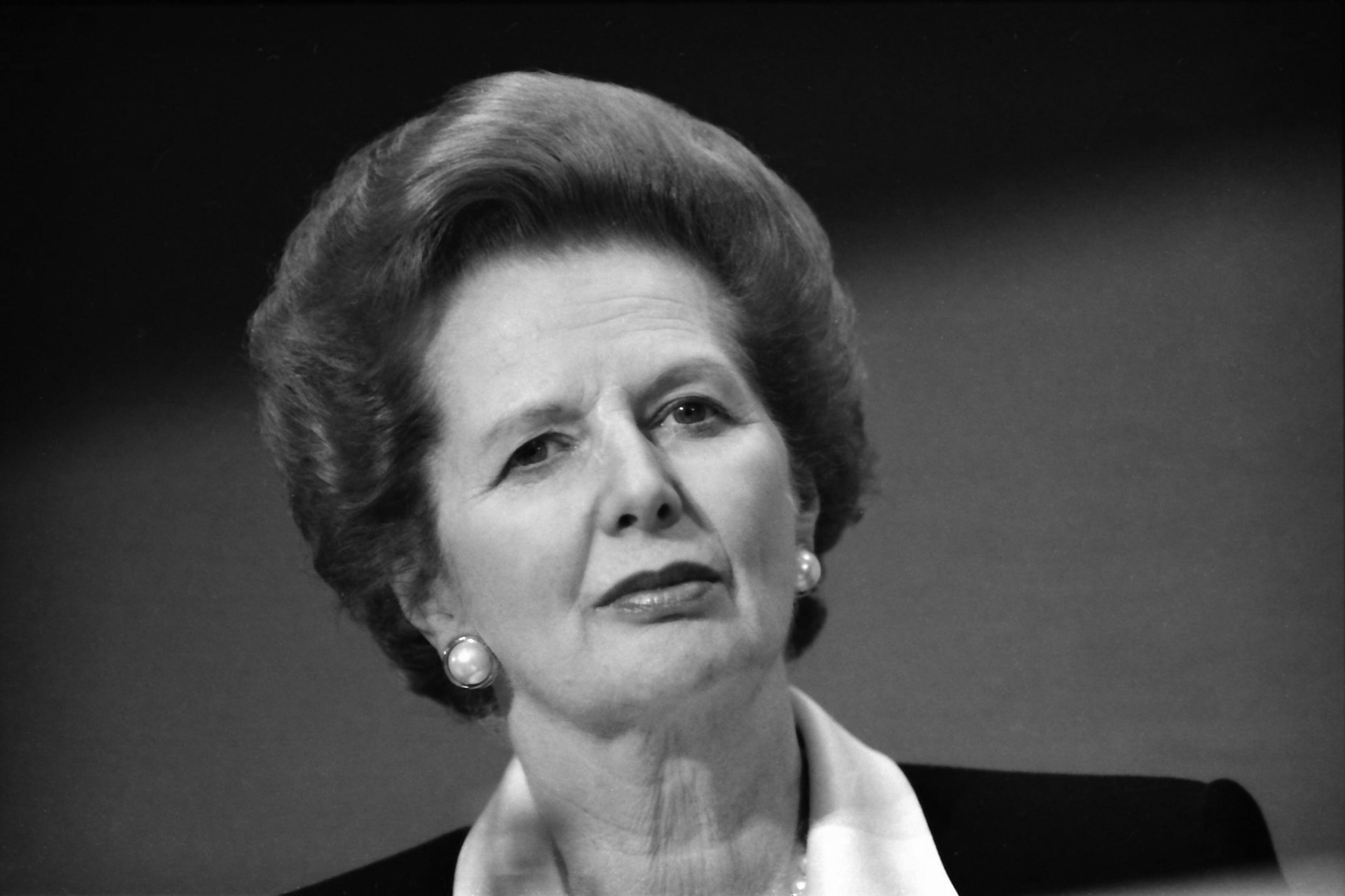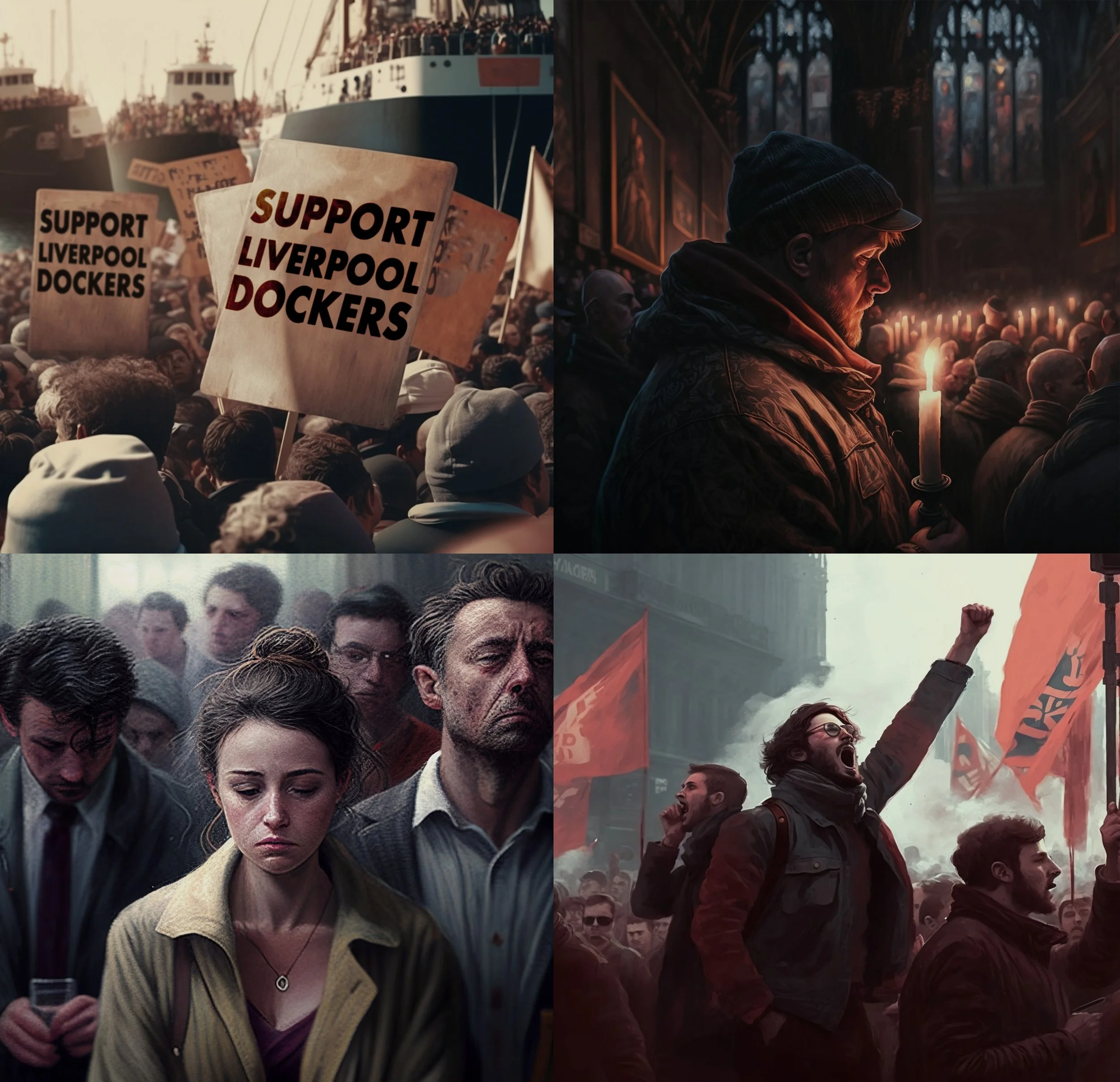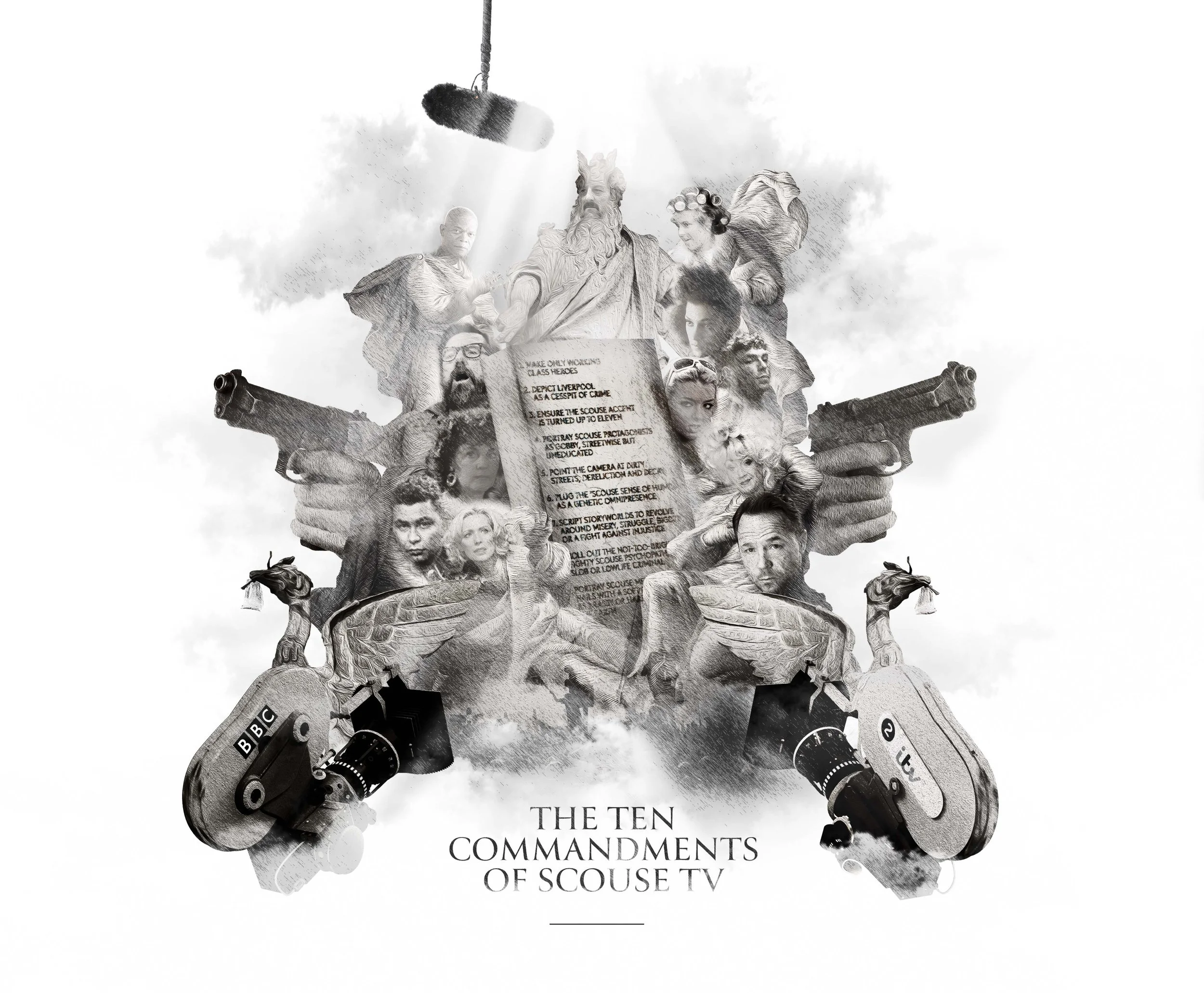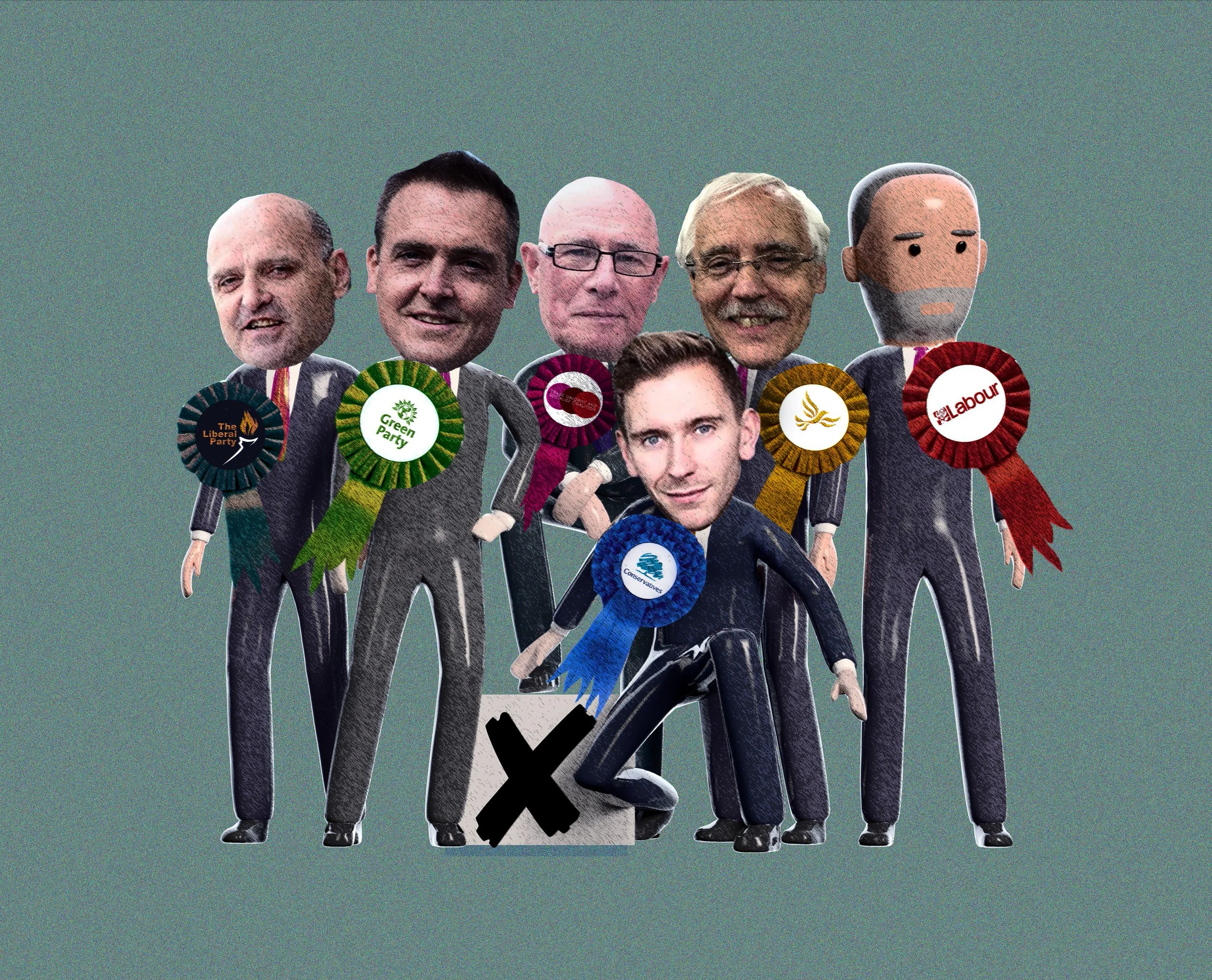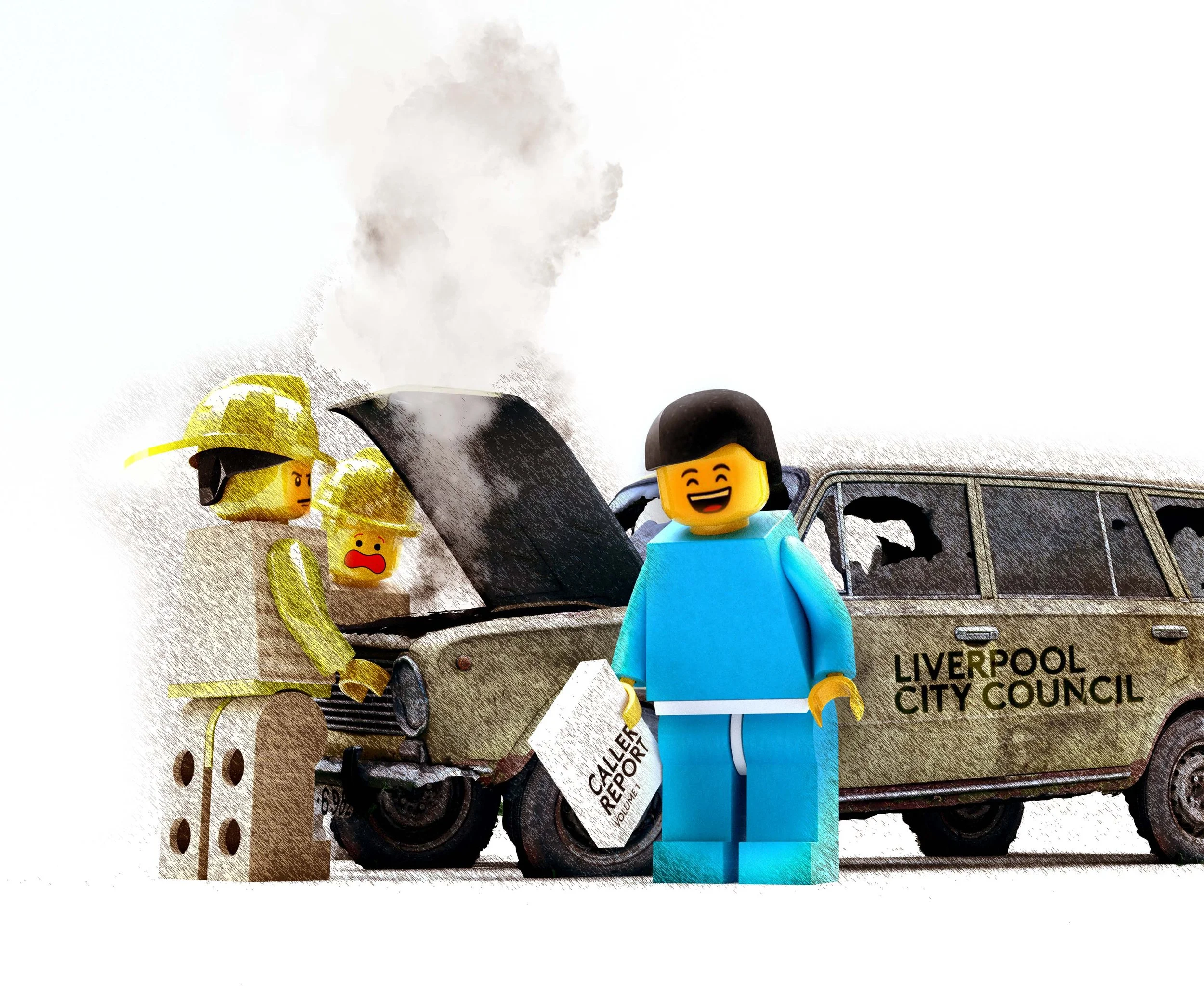Recent features
Eurovision 2023: Liverpool’s Imperfect Pitch
When Liverpool won the right to host Eurovision 2023 on behalf of war-torn Ukraine, most people in the city celebrated. With its reputation for music and for fun nights out, allied to its compassionate heart, the city was seen as the perfect fit in difficult times. But some have warned that in mistaking kitsch for cool Liverpool risks reinforcing a narrow and trivialised perception of its cultural brand. Jon Egan wonders how we can subvert expectations to deliver on the European Song Contest’s higher purpose.
Jon Egan
Amidst the near-universal jubilation at Liverpool’s successful bid to stage Eurovision, I struggled to suppress an almost inchoate feeling of dissident cynicism. Is the European Capital of Culture now pitching its future identity on an ambition to be the European Capital of Light Entertainment?
Liverpool is a perfect fit for Eurovision we are told by the bid’s architects and cheerleaders, though this natural synergy with an event that was until very recently derided as a festival of musical mediocrity is at the very least an arguable proposition. No disrespect to Sonia (creditable second) and Jemini (nul points), but they are rarely name-checked when the city intones the sacred litany of its popular music icons. As travel writer and destination expert, Chris Moss opined in his recent Daily Telegraph article; “From Echo and the Bunnymen to The Farm, from The Mighty Wah to The Lightning Seeds, pop and rock culture in Liverpool has always been anti-establishment, iconoclastic and often disdainful of national media-driven circuses."
I’m old enough to associate the Eurovision Song Contest (as it was called once upon a time) with Katie Boyle, a BBC stalwart and actress whose deft professionalism and elegant gentility made her a perfect fit as TV host for an earlier incarnation of the continent’s festival of song.
I’m not quite old enough, however, to remember, what is now my favourite ever Eurovision-winning performance, France Gall’s weirdly off-key rendition of Serge Gainsbourg’s ironic masterpiece, Poupee de Cire, Poupee de Son. Yes, there was irony at Eurovision long before Conchita Wurst or the knock-about stage-Irish buffoonery of the late Sir Terry Wogan.
Eurovision’s durability is doubtless its capacity to adapt to the changing mores of social convention and popular culture, not to mention the seismic disruptions to the boundaries and very identities of its competing nations. Which of course, takes us to 2023 and a Eurovision overshadowed by the tragedy of war in Ukraine. So it’s time for me to swallow my cynicism and recognise that this Eurovision is more than a celebration of blissful superficiality. Eurovision, which was conceived as an event to help bring a war-ravaged continent back together, has rediscovered a higher purpose and it’s up to us to deliver it.
There are already some encouraging signs. Claire McColgan and her team are planning an events programme that will celebrate Ukrainian culture in its many guises and remind the watching millions why this is happening here and not there. Liverpool’s Cabinet Member for Culture, Councillor Harry Doyle, told a gathering of stakeholders that he’s open to ideas about how the city can derive the maximum benefit and the most enduring legacy from next year’s Eurovision. So, if Harry wants my two penn’orth worth, here goes.
Whilst researching an article for the Daily Post sometime in the run-up to the European Capital of Culture, I asked David Chapple, a former Saatchi & Saatchi creative and regular visitor to the city, how he would market Liverpool. His answer was stark and challenging -“Stop telling people what they already know, surprise them!” I’m not sure that we have ever managed to live up to David’s exhortation. As Chris Moss warns, there is a danger that by claiming a perfect fit with an event that “mistakes kitsch for cool” we may simply be reinforcing a narrow and trivialised perception of Liverpool’s cultural brand. Moss, born and bred in neighbouring St Helens, believes that a city that should be the UK's foremost cultural destination is committing another branding "blunder" (having tossed away its World Heritage Status) by claiming an almost umbilical affinity with what he provocatively dismisses as a "naff, brainless extravaganza."
Moss's rhetoric may be extravagant, but there is more than a kernel of truth in the proposition that we have consistently failed to articulate and market the breadth and quality of our cultural offer. Ensuring Eurovision simply doesn't serve to reinforce a constraining stereotype, has to be a guiding imperative.
“There is a danger that by claiming a perfect fit with an event that “mistakes kitsch for cool” we may simply be reinforcing a narrow and trivialised perception of Liverpool’s cultural brand.”
So rather than being the perfect fit, let’s set out to design an imperfect fit. Let’s confound expectations, stretch the envelope and deliver a gathering that offers more than the “glitter and sparkle” that Doyle describes as the essence of Eurovision, but also explores what he terms (somewhat vaguely) “the added layer of Europe.”
I’m certain that Harry, Claire and their team are sincerely committed to ensuring Liverpool’s Eurovision acknowledges the wider European and specific Ukrainian context, although the confectionary metaphor suggests an application of icing rather than an especially bespoke cake mix. Surely now more than ever the “added layer” is the essence.
Returning to David Chapple and his urgings to surprise, the challenge to Liverpool would be how do we stage and wrap Eurovision in a way that confounds stereotypical perceptions of the city, that expands and subverts expectations while revealing a facet of unsuspected seriousness and cultural depth? Given the unique circumstances of this gathering, it seems like an appropriate juxtaposition to pitch the exuberant excess of Eurovision with a broader conversation and cultural exploration of the event's unsettling backdrop.
Notwithstanding Joanne Anderson’s excusable hyperbole that “the eyes of the world will be on Liverpool,” Eurovision 2023 will attract enormous numbers of visitors and serious levels of media attention. Liverpool needs to embrace the opportunity, and the responsibility, to do more than simply host Europe’s ultimate carnival of camp.
Are there media partners with whom we could convene a Eurovision of Ideas - a virtual or even physical gathering of thinkers, policy-makers and artists from Ukraine, the UK and Europe to explore how the shattering reality of yet another European war can help us to forge a deeper and more durable sense of solidarity and a shared future?
Is there space to stage an expo for Ukrainian businesses including their burgeoning technology sector, to help them forge new contacts and explore new markets?
For Ukraine, Eurovision has become a symbolic staging post in a journey from isolation and the cultural suffocation of the Soviet era. This war is a painful and bloody episode within the struggle for a new cultural and economic relationship with its estranged continent. So, how do we ensure that the celebration of Ukrainian culture proposed by Claire McColgan is sufficiently resourced to be immersive and integral and not merely a quaint window dressing for the main event? Culture Liverpool is bidding for funds to deliver a European-themed cultural programme, but an email to cultural organisations inviting bids was hastily withdrawn in the absence of any definite funding commitment from Arts Council England. These are early days, but this is not a positive omen.
In a recent conversation with me, journalist and commentator, Liam Fogarty speculated that if Manchester or Glasgow were staging this Eurovision, the scale of ambition might be greater and the prospecting for partners, funders and co-creators more lateral and imaginative. He is perhaps not alone in that thought. For the first time in nearly two decades, we have been successful in a major bidding competition, but what happens when the circus leaves town? What's our pitch to ensure a positive legacy and how do we create this event in a way that shows a previously unsuspected vista of a more interesting and multi-faceted city?
This is a huge opportunity to redress the imbalance of cultural investment towards London (and even Manchester) by demanding the resources to give a platform to the diversity of a resurgent Ukrainian culture, emerging from what contemporary poet, Lyuba Yakimchuk has described as a “war of decolonisation.” At the end of the day, we’re standing in for the place that would, but for the obscene brutality of Putin’s invasion, be hosting this event. So, let’s stretch every sinew and apply every creative impulse to celebrate the identity of a nation that a deranged tyrant is seeking to wipe off the face of the map.
And of course, we already have a connection and relationship with a Ukrainian city dating back to the early 1950s when Odesa was in the Soviet Union. In truth, Liverpool’s twinning relationship with the Black Sea port had become a largely hollow civic anachronism - a relationship long since packed away in the lumber room of municipal memorabilia. Until now, the cultural highlight of the twinning relationship was an impromptu concert by Gerry Marsden on the Potemkin Steps when the Merseybeat legend led an aid convoy after the Chernobyl nuclear disaster.
“For the first time in nearly two decades, we have been successful in a major bidding competition, but what happens when the circus leaves town?”
For Odesa, threatened with invasion and subject to merciless missile strikes, friendship and solidarity have acquired a new and vivid resonance. Steve Rotheram's ambition to make Eurovision Odesa’s “event as much as our own” is generous and laudable but it will only be honoured by a substantial financial and imaginative investment and genuinely collaborative curation.
Without prescribing what a co-created cultural programme might look like, there is massive scope for stunning and surprising collaborations. One of the many intriguing (and sadly unrealised) ideas championed by the much-maligned Robyn Archer, whose brief tenure as Creative Director for Capital of Culture 2008 marginally exceeded Liz Truss’s occupancy of 10 Downing Street, was to stage performances by the Dutch National Opera in the semi-dilapidated grandeur of Liverpool Olympia. Notwithstanding Liverpool’s uncharacteristic failure to extend our famed hospitality to the soon-to-be homeless English National Opera, we could perhaps invite Odesa’s renowned opera company to be part of our Eurovision cultural celebration in their sister city. Whether at the Empire, Olympia (or even my long cherished dream to stage opera in the epic setting of St Andrews Gardens aka the Bullring), we could at the very least promise them a performance that would not be interrupted by air raid sirens or the rumble of distant explosions.
Sharing the Eurovision limelight with Odesa must be the beginning of a longer-term commitment to work with a city still under daily Russian bombardment. Beyond cultural and humanitarian co-operation, there may be a myriad of ways in which we can assist with trade and reconstruction. Even before the damage inflicted by Russian missile and bombing strikes, Odesa's Soviet-era port infrastructure was in dire need of investment and modernisation. Through a concordat for economic co-operation between the two cities, Liverpool should be using the exposure of Eurovision to gather together and broker the expertise and potential investment partners to help Odesa recover from the trauma and devastation of the present conflict.
All this may seem too ambitious, unrealistic or even unnecessary. At the end of the day, all that’s expected of us is that we put on a show, manage the organisation with reasonable efficiency and make an appropriate gesture to recognise the special circumstances of this Eurovision.
Maximising the opportunity and legacy is an undertaking that would require a massive collaborative effort with support from the UK Government, broadcasters, and cultural institutions here and in Ukraine. But without an initiative and impulse from Liverpool it will simply not happen. The unprecedented context surrounding the hosting of Eurovision 2023 demands exceptional effort and imagination, and we will never have a more morally compelling case for partners to match rhetoric with tangible resources.
For Liverpool, to quote Liam Fogarty, we should view Eurovision as “the starting block, not the finishing line” in the process of repositioning the city, building our cultural brand and answering the fundamental question posed in Chris Moss’s Telegraph article - what does Liverpool want to be?
Are we content to be the perfect fit, and use the Eurovision stage to repeat what the world already knows - that we’re a place that can deliver a great night out? Or will we use it to express the depth of our generosity and hospitality, the breadth of our imagination and the magnitude of our ambition?
Jon Egan is a former electoral strategist for the Labour Party and has worked as a public affairs and policy consultant in Liverpool for over 30 years. He helped design the communication strategy for Liverpool’s Capital of Culture bid and advised the city on its post-2008 marketing strategy. He is an associate researcher with think tank, ResPublica.
Share this article
Why we should stop banging on about Thatcher and the Toxteth Bloody Riots
Journalists arrive in Liverpool to tell the same story over and over again - the city cast as the lead in a Shakespearean morality play, fuelled by righteous anger, touched by tragedy, let down by treachery. Yet is our own obsession with the 1980s feeding the media stereotypes?
Paul Bryan
My personal experience of the 1981 Toxteth Riots existed, as for so many others in Liverpool, solely on television. The nightly news reports showed lines of police officers cowering under shields as youths hurled stones and set light to cars and buildings. I didn’t know why it was happening but I knew it was exciting and so did my friends – as if through some mechanism of the collective unconscious we quickly turned it into a street game, unimaginatively called ‘Toxteth Riots’. The rules were fairly simple. All you had to do was clutch a metal bin lid and defend yourself from rocks and stones hurled somewhat half-heartedly by your mates. The winner was the one who could stick it out for the longest. Writing about this now, I’ve only just realised, we were instinctively putting ourselves in the shoes of the police. They at least seemed understandable. Still, it didn’t hold our attention for long. We got bored of it after two nights.
If only I could say the same about the national media. 41 years later and they’re still using the Toxteth Riots as the go-to framing device for just about any story on Liverpool. Of course, in no way do I mean to belittle the experiences of those who were there, or those who suffered under the social forces that made life more difficult. But for me growing up, the riots always felt like something distant, from some other Liverpool, far off and largely irrelevant. If anything, the Toxteth Riots were a boon – they gave me the chance to meet TV scarecrow, Worzel Gummidge at the International Garden Festival three years later, thanks to the intervention of Michael Heseltine, unofficially crowned the Minister for Merseyside.
I mention this personal story because I’ve noticed a tendency in the media and in political circles to describe Liverpool as a single unit, with a single, monolithic outlook and I find this approach unhealthy and untrue. The Toxteth Riots as history and metaphor have become something of an unquestionable foundation stone in our understanding of Liverpool’s journey. I’m not for one minute doubting their significance, but merely wish to flag that, due to the vicarious nature in which they were experienced by many, the events will never speak to us all in the same way and I think that’s worth acknowledging given the sometimes over-simplified, stripped-down caricature of ‘Scouse’ tales that we are often encouraged to identify with. And if that applies to someone who was alive at the time, you can bet it will apply even more to those who were as yet unborn.
The Toxteth Riots sit as the starting point of a master narrative that is told and retold ad finitum. Typically, it’s a story pitched as one of strife and rebirth – a city on its knees rising phoenix-like from the ashes with the regeneration that followed. Either that or it’s used to evidence our home town’s long history of racial inequality. There are further beats in the story of course and usually they point to ‘basket-case’ – a city that just can’t seem to catch a break or get its house in order. A place that is frankly perplexing. Journalists visiting Liverpool tell the same story, time after time, yet they never tire of it, new facts on the ground serving merely to embellish an already familiar pattern.
It would be easy to point the finger at outsiders here, but this game plays out amongst Liverpool’s inhabitants too and I’ve begun to wonder… does the incessant focus on the 1980s (and we must throw the hate figure that is Margaret Thatcher into the same pot) does the constant repetition serve the city’s best interests? Do these references still yield insight or are they just a reheating of old battles, about as useful to understanding Liverpool today as the Suez crisis is to making sense of Britain’s contemporary approach to foreign policy?
A case in point. This week, the Mayor of Liverpool, Joanne Anderson was interviewed by a journalist from the left-leaning New Statesman magazine, enticed no doubt by the city’s hosting of the Labour Party Conference. Ostensibly about Liverpool’s current political crisis, the article began like this… “In 1981, the violent arrest of a young black man near Granby Street in Toxteth, Liverpool, led to nine days of rioting.”
“Journalists visiting Liverpool tell the same story, time after time, yet they never tire of it, new facts on the ground serving merely to embellish an already familiar pattern.”
What followed was a tick list from the unofficial media guide to Liverpool which we presume is handed out by the NCTJ on journalism graduation day. Margaret Thatcher, ‘managed decline’, European Capital of Culture and the regeneration of the Albert Dock, Derek “Degsy” Hatton and the Militant Tendency, gang warfare and the shootings of young children, now sadly updated with new names. Welcome to Fleet Street’s version of Punxsutawney where we’re all doomed to live the same day, every day. Bill Murray, at least, found a way out. In Liverpool, we’re still looking.
Truth is, the story could have been about anything – crime, the opening of an arts festival, or an important football match and it could have been published anywhere – The Telegraph, The Guardian, The New York Times or Unherd. It doesn’t really matter what the initial prompt is, as long as the story stays the same. Liverpool, the city, is perennially cast as the troubled lead in a Shakespearean morality play, fuelled by righteous anger, touched by tragedy, let down by treachery, now sadly a watchword for – (insert your favoured macro-political, agenda-driven blank here).
Refreshingly, the Mayor was not too impressed with the New Statesman article. On Twitter, Joanne claimed the writer had “focused on a whole load of scouse stereotypes” and accused him of “lazy journalism”. I found myself in agreement so I reached out to the Mayor for further comment, and to my surprise she replied. What she had to say, for a local Labour leader is, I think, important and worth hearing. But you’ll have to wait a while. You see, first I have this theory and it involves turning our attention inwards. It’s the real meat in this piece. For as much as we might want to blame the media, I believe that the press are, in large part, reflecting back what we as a city put out about ourselves.
Sometimes, our own worst enemy
Compare these two statements. The first is by a journalist, Oliver Brown, Chief Sports Writer at the Telegraph, who was writing about Liverpool’s complex relationship with the establishment in light of some fans failing to observe a minute’s silence to mark the death of the Queen.
“Liverpool is a city that feels that it has been shunted to the margins of British society. It is scarcely an unfounded view.”
The second is from Kim Johnson, MP for Liverpool Riverside who was describing her sense of betrayal at Labour Leader, Keir Starmer writing in the Sun in 2021.
“We are the Socialist republic of Liverpool, a city that marches to the beat of a different drum, a resilient city that will always come back fighting. But we have a long memory and will not forget this betrayal by the leader of the Labour Party, in our Labour city.”
Can you spot the similarities? For starters, they are both quite careless in their use of the collective – back to that sense of the monolithic, singular opinion to represent the Liverpool way. But they also both spoke to something else – a powerful sense of grievance baked into the city identity. Kim Johnson’s quote in particular was the perfect crystallisation of a view that has become increasingly noisy in recent years – the idea that Liverpool is ‘Scouse, not English’ – a place apart, waged in a perpetual battle to get a fair deal, coalescing around some sense of the ‘Other’.
A few weeks back, the Liverpool Echo’s Dan Haygarth, in a quite remarkable article, attempted to explain why so many in the city reject national identity. As explanations go it was comprehensive, yet strangely unconvincing, but it was a perfect reflection of what passes for common sense around here. Supposedly, our 19th-century Irish roots had turned us into ‘rebels’ sceptical of authority; our coastal location transformed us into natural internationalists who looked out rather than in; a history of being ‘let down by the establishment’ first by the Thatcher government in the 1980s and then over the Hillsborough disaster had for many ‘broken the city’s relationship with England beyond repair.’ Throw in the generosity of EU European Objective 1 funding followed by savage post-2010 cuts from Westminster, a Brexit vote that went the wrong way and a nasty article in the Spectator under Boris Johnson’s watch and a seemingly irresistible case was made for a city destined to walk alone.
Haygarth’s article concludes – “The phrase 'Scouse, not English' not only encapsulates Liverpool's civic pride and a healthy rebellious spirit, but expresses a feeling that the city has been so often let down by the establishment of this country. It should come as no shock that large swathes of this Labour-voting, outward-looking, and heavily-Irish city do not feel like they have much in common with the rest of England.”
“They also both spoke to something else – a powerful sense of grievance baked into the city identity… a mutual connection made through the collective swallowing of bitter pills… our loudest voices complicit in the forging of our own myth of alienation.”
For me, the sense of our loudest voices being complicit in the forging of our own myth of alienation is palpable and the justifications horribly deterministic. Who here thinks their life choices and personality are determined by people born 200 years ago? Stitching together disparate events, our public figures and opinion-formers are consciously weaving a narrative that seems to share some of the features of an accelerated national story – one encompassing communal loss and betrayal, a unique sense of difference forged through a mythic connection to lands beyond the horizon and an othering from a surrounding horde of distinctly unsympathetic barbarians. But as foundation stories go, it seems to lack many of the positive elements that make nationhood worth having – with little sense of victories past or historic purpose hard won. Today, it’s hard to look back to our past days as the Second City of Empire with any pride – our fine buildings now come tinged with a dusting of racial guilt. Meanwhile, victories in the class war seem thin on the ground. We are adrift.
What is striking about this evolving story of self, and I must point out that this is about the narrative, not the individual, what is most striking is that it does seem to cohere around a strong sense of grievance for slights endured – a mutual connection made through the collective swallowing of bitter pills made palatable by the odd-football win. Of course, many will simply feel this description does not fit and may take offence at any perceived slight on their scouse identity. But this project to manufacture a sense of separation is very real.
In my view, we are being sold a pup and it’s one that needs to take a trip back to the vet. While we gripe against lazy stereotypes in the media, we are, in truth, guilty of playing to them ourselves and too often take on these restrictive ideas as our own. Liverpool, and I say this with genuine love, is in danger of becoming an addict to its own class-A narrative.
Stuck in the past – where’s our sense of agency?
I’m conscious I need to explain how I think this works and why I believe it’s so dangerous to our health of mind and our future prospects. Let’s go back to that Liverpool Echo article and the popular argument. It has the benefit of simplicity. It goes like this… our sense of grievance, which is legitimately founded, is fuelling our independent, republican spirit, our demand for fairness and our rejection of Englishness, and this is entirely understandable and in some ways positive. It is up to the English and the English alone to make good or we’ll carry on our separate way. Should you be so minded you can buy the mug or the t-shirt and proudly proclaim your support for the Scouse Republic.
Now let me explain what I think is really happening. It ain’t pretty. Strap yourself in. I won’t be winning any prizes for popularity.
My argument is that our sense of grievance is fuelling not a positive assertion of independence but a downward spiral into insularity. The modern sense of political scouse identity that we are being encouraged to adopt, is a perversion of the positive and energetic forms that went before. It is forming primarily around negative assumptions – everyone hates us, we never get treated fairly, we have to fight for everything, and the outcomes that we want are largely beyond our control. There is a sense that the game is rigged against us, feeding a loss of faith in government authority both in Westminster but also increasingly at the local government level too. That’s one of the reasons why we’ve been seeing such low electoral turnouts. After all, if you view things that way, what is the point?
“Our sense of grievance is fuelling not a positive assertion of independence but a downward spiral into insularity. The modern sense of political scouse identity that we are being encouraged to adopt, is a perversion of the positive and energetic forms that went before.”
A primary feature of this outlook is pessimism and a loss of faith in the future. Our belief in our own agency to identify and solve the city’s problems and to conceive of big, ambitious solutions is becoming eroded over time. This is why today, in Liverpool of all places, we feel the pull of the past so strongly, expressed as it is in our stubborn defence of heritage (even when it makes no sense) or our determination to keep fighting old battles long after the social forces that made them have ceased to apply. Looking to the past is simply more reassuring because there is already a map to guide us and our obsession with the 1980s is at least in part, down to this nervousness about our future. It is also a politically convenient way of passing the buck.
As we struggle to find solutions to the problems we face and lose hope of better outcomes, our instinct as proud men and women of Liverpool is to throw our ire outwards, to say, ‘Sod you’ to the rest of England, which as the mooted source of our suffering is cast as the villain (the Scots, Welsh and Irish have our sympathies as they are also considered to be under ‘the yolk’). So then we double down on our own sense of uniqueness - we are hated because we are different - which is mostly a palatable rationalisation of our own sense of defeat. Of course, some people just go away, fire up their belly, and take charge of their lives, for example by setting up a business in places like the Baltic. Others just go away. Meanwhile, as a community, we re-commit to our grievances.
Unfortunately, despite the likelihood of a new government and a change in policy direction, there is little prospect of a shining knight riding over the hill to rescue us. We know this, don’t we? Our grievances serve no purpose in a battle we cannot win. All they do is fuel our sense of powerlessness. What we need to do as a city, as a people and as individuals is to reclaim our sense of power and agency and we can only do that by just doing it. Some, like Metro Mayor Steve Rotherham, will argue that this is why he is trying to gain more powers for the Combined Authority so that the region can exercise more control over decisions and that is right. But unless our leaders can find a way to turn their backs on the dominant pessimism of these times, they will dream only little dreams.
What ‘Scouse, not English’ and the backward-looking forever-focus on the 1980s offer us is a shrunken vision of our place in the world. A tiny Scouse Republic of Retreat - a new Pimlico. Sure, it doesn’t require a passport for entry and exit, but just like in that famous Ealing Comedy, it brings with it a wariness of the outside and a closing of doors at the exact time we need to be opening them. We should have no truck for this limited and carefully edited version of ourselves, this ‘Petty Scouser’ mentality. Instead, let’s stand tall, be open to the world and claim our confident place amongst it.
So, back to Thatcher and Toxteth
A little section here about our 1980s obsession and who stands to benefit. Let’s be clear. When in 2022 people re-raise folk devils from 40+ years ago as if they are still relevant, they are doing it for a reason. In Liverpool, it gives activists and elected representatives an alibi, allowing them to point the finger of blame outwards for the city’s sorrows, instead of looking within. It’s a way of avoiding scrutiny and of taking responsibility for inventing new stories and new sources of power and success. It’s time we all got wise to it. We deserve better.
Folk-Devil: In Liverpool, Margaret Thatcher was seen as a real-life Voldemort (Photo: Paul Marriott /Alamy)
More concerning though is what an over-zealous focus on the past communicates to the world outside and to the people we’d like to partner with. Forever talking about the 1980s pins us as irrelevant, backward-looking, and worst of all, passive in the face of the present. By using long-gone events to explain the outcomes of today, we risk turning ourselves into victims of history, still driven by events we cannot change. Time to let go.
What’s in a name?
At Liverpolitan, we’ve often been chided for adopting such a name. Why didn’t we use Liverpudlian? Nobody calls themselves a Liverpolitan. But exercising our agency means waving goodbye to insularity and engaging fully with the world around us. It is our signal that this country and in fact the whole planet is full of Liverpolitans making their way beyond the narrow confines of the city limits. What is remarkable about many of these people, is that though their lives have taken them elsewhere, they retain their passion for their ultimate home. They are a resource, they are legion and they are on our side. We should use them.
Last words to Joanne…
So what did the Mayor say that was so interesting? If we are being honest, it is the Left in the city that has been more prone to mining the past. You can argue it’s been an election-winning strategy, but that doesn’t mean it’s the right thing to do. So when the Labour Mayor of Liverpool tells us it’s time to face forward, I think we should listen. Here’s what she had to say.
“Every city has its challenges, and Liverpool is no different. But outdated scouse stereotypes and harking back to the 1980s does not define our city today. It is blatantly obvious that the city has undergone massive transformation and is continuously evolving. We have a dynamic culture and arts scene and major regeneration projects, whether it’s the growing health and life sciences sector, the film studios on Edge Lane, or Bramley Moore Dock. It is damaging when publications rely on the same old tired cliches and narratives about Liverpool, as it just perpetuates old myths that simply are not true. Liverpool is looking forward with optimism – maybe it’s time others do too.” Joanne Anderson, Mayor of Liverpool.
Paul Bryan is the Editor and Co-Founder of Liverpolitan. He is also a freelance content writer, script editor, communications strategist and creative coach
*Main picture by Alex McCarthy on Unsplash



